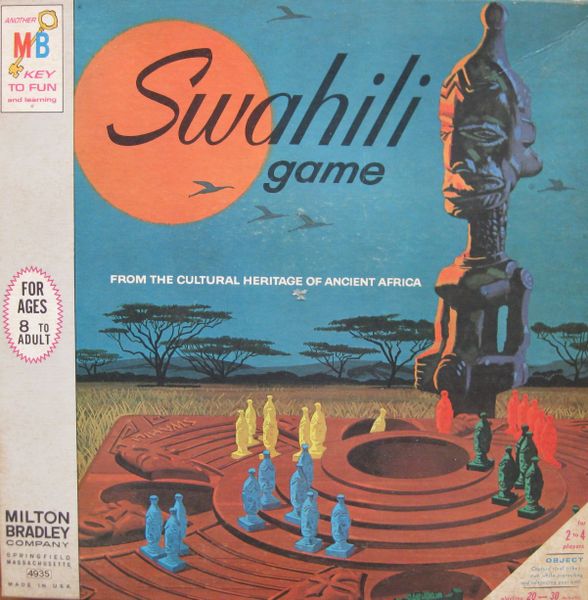Swahili (1968) Board Game
Swahili is a classic board game that was released in 1968 by Milton Bradley. It is an abstract strategy game that is played with 2–4 players. The game is based on the traditional African game of Mancala, which has roots dating back thousands of years. Swahili incorporates elements of strategy, planning, and resource management, making it a challenging and engaging game for players of all ages.
Game Components of Swahili
How To Setup Swahili
To set up Swahili, players first arrange the three-dimensional board, ensuring each player has their own path and the central pit is in place. Each player selects their set of 12 tribesmen and places them at the starting point of their respective paths. The game is ready to play once all pieces are correctly positioned.
Gameplay Mechanics and Game Objective
Player Experience
Playing Swahili offers a blend of strategy and luck. Players must carefully plan their moves to avoid the pit, adding an element of suspense and excitement. The game’s three-dimensional board and unique mechanics make it stand out from other board games of its time.
Pros
Cons
Personal Thoughts on Swahili
Swahili is ideal for those who appreciate vintage board games and are looking for a unique gaming experience. It is particularly suited for families or collectors of retro games. The game’s combination of strategy and luck makes it appealing to a wide range of players, especially those who enjoy games with a historic twist. However, its availability and the potential for limited player interaction might make it less appealing to some modern gamers.
We are supported by our audience. When you purchase through links on our site, we may earn an affiliate commission, at no extra cost for you. Learn more.

